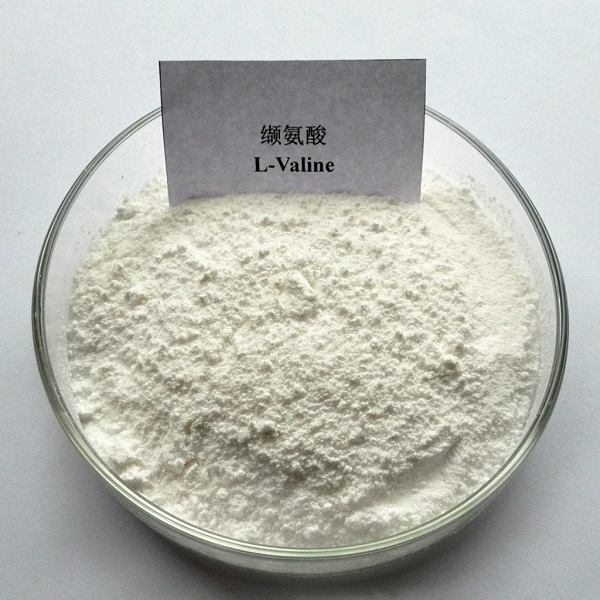An essential amino acid—-L-valine
L-valine is one of the 20 amino acids used to synthesize proteins in the human body, which are chemically known as proteinogenic amino acids. It is named for the valerian plant, from which valine was first derived. The DNA codons for L-valine are GUA, GUC, GUG and GUU. L-valine is non-polar and is one of three proteinogenic amino acids that have a branched chain, along with isoleucine and leucine.
L-valine is an essential amino acid, meaning that it is not able to be biosynthesized in the human body. It must therefore be obtained through dietary sources, primarily meat. Dairy products are also high in L-valine, especially cottage cheese. Vegetable sources of L-valine include cereal grains, mushrooms, peanuts and soybeans. The minimum daily requirement of L-valine is 10 milligrams per kilogram of body weight for adult males.
Plants typically biosynthesize L-valine by using pyruvic acid as a precursor. This multi-step process requires several enzymes, including acetolactate synthase, acetohydroxy acid isomeroreductase, dihydroxyacid dehydratase and valine aminotransferase. Valine is often synthesized in the laboratory by brominating isovaleric acid from valerian extract. An amine group can then be added to the resulting bromide derivative to produce valine. The commercial production of L-valine generally consists of fermenting a carbohydrate source.
The most common uses of L-valine in health supplements relates to its role in muscle synthesis and maintenance. Additional uses of L-valine include stress management, growth in children and support of the immune system.
L-valine is an essential amino acid, so anyone who doesn’t receive adequate amounts of it in their diet may need L-valine supplements. Athletes such as bodybuilders and runners may also need additional L-valine as a result of their frequent, vigorous exercise. The most significant sign of an L-valine deficiency is weight loss, especially muscle mass. Conditions of the nervous system can also mean that L-valine can help you due to its role in forming the myelin sheaths that cover nerve cells.
